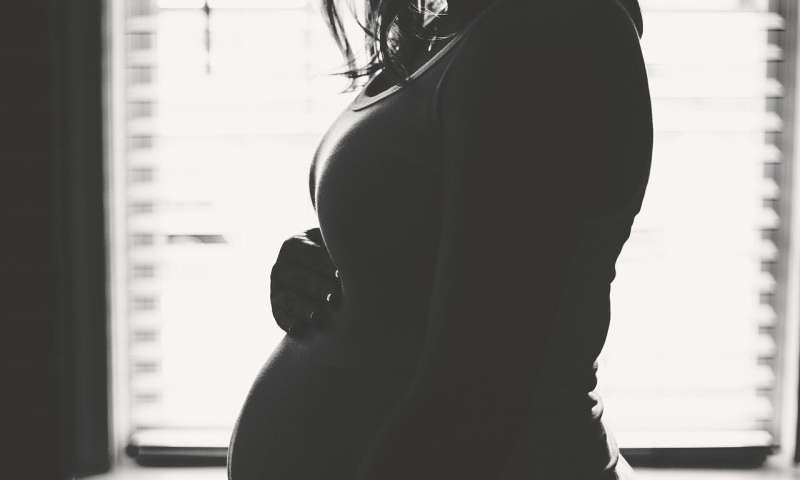Credit: CC0 Public Domain
Stillbirth is a recognized complication of COVID-19 in pregnant women caused by harmful changes to the placenta induced by the virus. Termed SARS-CoV-2 placentitis, it can render the placenta incapable of providing oxygen to the fetus, leading to stillbirth and neonatal death. Researchers now suggest that pregnant women who get the COVID-19 vaccine may be protected from SARS-CoV-2 placentitis and stillbirth. In a new article published in the American Journal of Obstetrics & Gynecology, researchers conclude that the vaccine not only protects pregnant women but may also be lifesaving for their unborn children.
The extensive examination of published literature involved reviewing nearly 100 papers looking at COVID-19's impacts on pregnant women and the effects on the placenta and pregnancy outcome. Sarah Mulkey, M.D., Ph.D., a prenatal-neonatal neurologist in the Division of Prenatal Pediatrics at Children's National Hospital and co-author of the article, says the findings make a strong case for vaccination.
"The COVID-19 virus fortunately does not cause birth defects like other viruses such Zika, but it can cause severe injury to the placenta that can result in stillbirth and other pregnancy complications," says Dr. Mulkey. "I hope patients who are pregnant or planning to become pregnant can learn how the COVID vaccine may help keep them and their baby healthy throughout pregnancy from some of the worst effects of this virus."
While stillbirths can have many causes, the data analyzed supports that the COVID-19 vaccine is beneficial for pregnancies and for reducing the risk of stillbirth by reducing the risk of the virus impacting the placenta.
"In the multiple reports of SARS-CoV-2 placentitis that have been associated with stillbirths and neonatal deaths, none of the mothers had received COVID-19 vaccinations," says David Schwartz, M.D., lead author, epidemiologist and perinatal pathologist. "And although not constituting proof, we're not aware, either personally, via collegial networks, or in the published literature, of any cases of SARS-CoV-2 placentitis causing stillbirths among pregnant women having received the COVID-19 vaccine."
Earlier in 2022, Dr. Schwartz led a team from 12 countries that found SARS-CoV-2 placentitis destroyed an average of 77.7% of placental tissue, resulting in placental insufficiency and fetal death, all occurring in unvaccinated mothers.
Fortunately, the large majority of pregnancies affected by a COVID-19 infection do not result in stillbirth. The development of SARS-CoV-2 placentitis is complex and likely involves both viral and immunological factors. The characteristics of a SARS-CoV-2 variant may also affect risk.
"Placental pathology is an important component in understanding the pathophysiology of SARS-CoV-2 infection during pregnancy," says Dr. Mulkey
As part of the Congenital Infection Program at Children's National, Dr. Mulkey has been following infants born to mothers who had SARS-CoV-2 infection during pregnancy since the beginning of the pandemic. She will present the results of the early neurodevelopment of these infants at ID Week in Washington, D.C., on Oct. 22, 2022. Dr. Mulkey will also lead the neurodevelopmental follow-up of a large cohort of infants born to mothers with SARS-CoV-2 infection during pregnancy to better understand any long-term neurological effects to offspring.
The study builds upon Dr. Mulkey's longitudinal studies on Zika virus infection in pregnancy and long-term impacts on the child.
More information: David A. Schwartz et al, SARS-CoV-2 Placentitis, Stillbirth and Maternal COVID-19 Vaccination: Clinical-Pathological Correlations, American Journal of Obstetrics and Gynecology (2022). DOI: 10.1016/j.ajog.2022.10.001
Journal information: American Journal of Obstetrics and Gynecology , American Journal of Obstetrics and Gynecology
Provided by Children's National Hospital
























